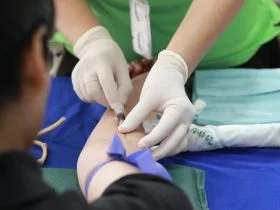Depression casts a long, pervasive shadow over countless lives, quietly dismantling both the mind and the body. It’s a shape-shifter, known for its ability to infuse daily routines with overwhelming fatigue and a pervasive sense of despair. The lingering question, “Whats wrong with me?” becomes a silent chorus in the minds of those affected, yet it speaks volumes about the inner turmoil they endure. Discovering the correlation between mental anguish and physical health is pivotal in confronting depression’s impact. Keep reading to unravel the often-hidden manifestations of this condition and the pathways available for healing and recovery.
Reader's Roadmap
The Impact of Depression on Physical Health and Daily Living
Depression’s reach extends beyond the mind, casting a dark shadow over an individual’s physical well-being. Chronic fatigue often plagues those grappling with this mental health ailment, reducing their energy levels to the point where even minor tasks become monumental. Such relentless exhaustion undermines one’s ability to maintain a healthy, active lifestyle, contributing to a cycle of decreased physical health.
The condition’s insidious nature can exact a toll on the cardiovascular system, manifesting in increased heart rate and hypertension. This response not only places undue stress on the heart but also elevates the risk of other serious health complications. Regular monitoring and medical guidance become paramount for individuals battling depression to mitigate these potential hazards.
Furthermore, depression is linked to erratic eating habits, swinging between loss of appetite and compulsive overeating. Nutritional imbalances stemming from these behaviors can lead to significant weight fluctuations, compounding physical health issues. Encouragement of a balanced diet and possibly the support of a nutritionist can help stabilize these patterns, fostering enhanced overall health.
Disrupted sleep patterns frequently accompany depression, with nights spent in restless wakefulness or excessive sleep during the day. This irregularity can exacerbate the severity of depressive symptoms, creating a feedback loop that entrenches the disorder. Individuals can break this cycle by prioritizing sleep hygiene and possibly seeking professional advice, improving their mental and physical state.
Breaking the Stigma: When and How to Reach Out for Help

The silence surrounding mental health issues often prevents individuals from acknowledging their struggles, creating a barrier to seeking treatment. With nearly one in five adults in the United States experiencing mental illness each year, the necessity for open conversations about depression is more pressing than ever. It is pivotal for society to cultivate an environment where seeking help is embraced as a courageous and positive step toward healing.
Timely recognition of depression’s symptoms aids in the pursuit of professional help, which can dramatically alter the trajectory of one’s mental health journey. Common signs such as persistent sadness, disinterest in previously enjoyed activities, and changes in sleep patterns warrant attention. These indicators should prompt an individual to consider professional consultation, ensuring the condition is addressed before it intensifies.
Depression, an ailment that stealthily erodes the quality of life, necessitates a compassionate approach when encouraging others to seek aid. Open dialogues with loved ones showing signs of this condition can pave the way for them to access therapeutic avenues. Communities must support those in distress by offering them information on available resources and, if needed, accompanying them as they take their first steps toward recovery.
Reaching out for help can transform from a daunting endeavor to an empowering action once the stigma attached to depression dissipates. Engaging with mental health professionals, whether through direct contact or referral from a primary care physician, unlocks access to various treatments. These include therapy, medication, and lifestyle adjustments tailored to each individual’s needs, fostering a path to rejuvenation and well-being.
Treatment Options for Depression: From Therapy to Medication
Identifying the most effective treatment for depression is contingent on the individual’s unique condition, which may require combining various approaches. Therapy often serves as a cornerstone, with cognitive-behavioral therapy being a widely recognized modality for its efficacy in reshaping negative thought patterns.
Antidepressant medications play a pivotal role in the management of depression for many, adjusting chemical imbalances in the brain that influence mood. Physicians tailor the choice of medication to suit the patient’s specific symptoms, medical history, and any co-occurring health conditions. Individuals must adhere to prescribed dosages and communicate openly with their healthcare provider regarding any side effects.
Lifestyle modifications complement traditional treatments and can significantly bolster recovery from depression. Regular exercise, adequate sleep, and a nutritious diet positively affect mood and can enhance overall well-being. Incorporating these habits requires a supportive framework and often the guidance of a healthcare professional to ensure sustainability and effectiveness.
Overall, recognizing and addressing the multifaceted impact of depression on both mental and physical health is crucial for recovery. By seeking professional help and making lifestyle adjustments, individuals can effectively manage depression and improve their quality of life.







Leave a Reply
View Comments